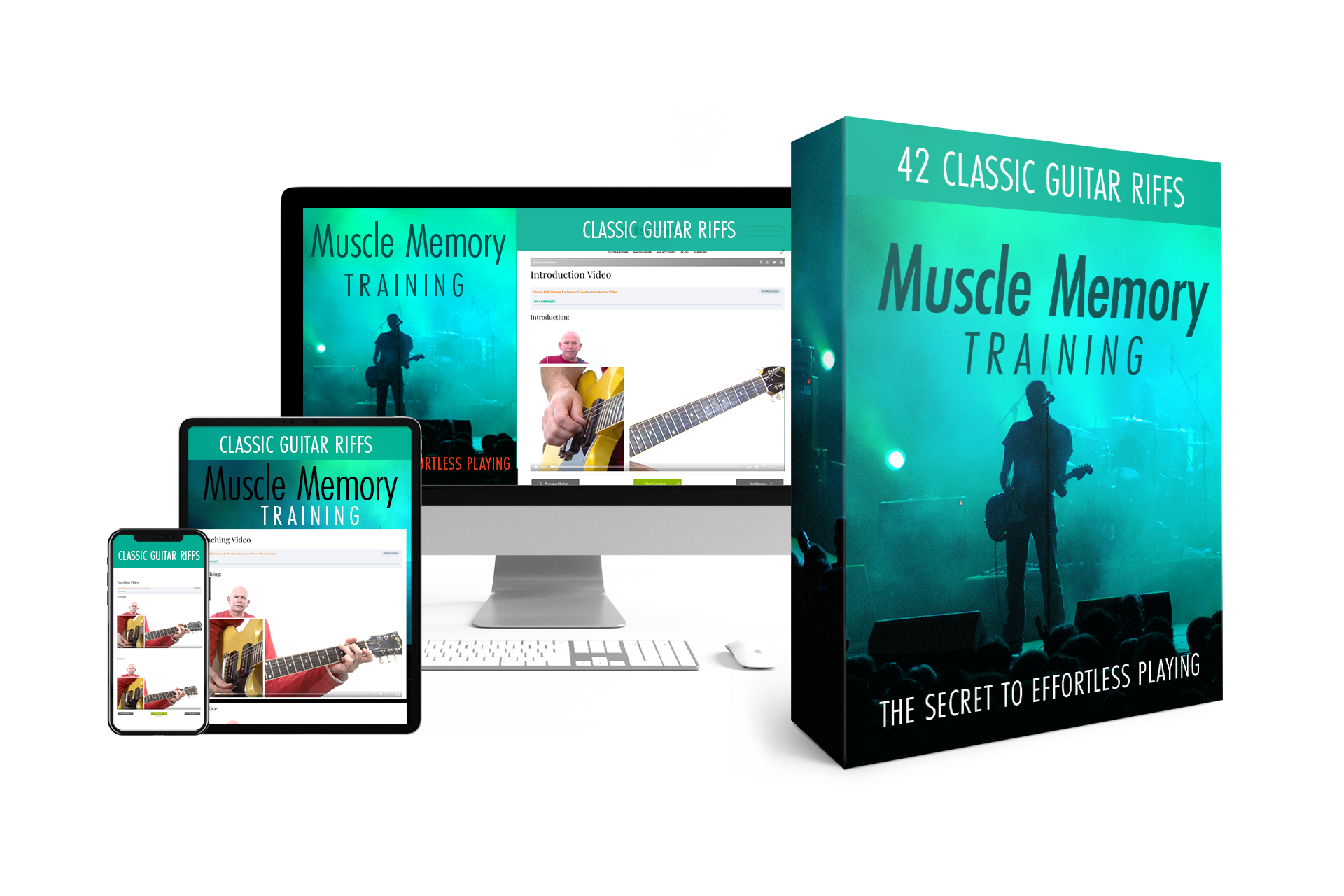5 Common Practice Routine Problems – And How to Solve Them
1) Not Having One At All!
There are two types of guitarists in this world – those who have a practice routine, and those who need a practice routine. Repeated, regulated practice is vital in improving your skill level at absolutely anything, from sports to languages to music. This doesn’t mean you should ever stop playing, jamming or noodling – there’s nothing wrong with playing for fun, alone or with friends, playing absent-minded in front of the TV, or riffing on an idea upside down in bed! It’s about definitions. These things should be separated from your “practice routine” which is a time when you should focus directly on learning, improving and systematically growing your skill level.
2) Too Short / Too Long
The length of your practice routine is important. It doesn’t have to be an extremely precise number of minutes. Routines that are too short or too long bring with them a whole new set of problems, too. If you’re not practicing enough, you’re not building the technique and muscle memory needed to develop. Too long a practice routine can cause many issues from lethargy to dwindling enthusiasm to repetitive strain injury. Besides, repetition is far more important than time. It’s better for muscle memory development to practice ten minutes a day for six days rather than one hour, once a week. Balance is essential. What constitutes a ‘long’ practice routine is obviously different for a beginner guitarist, compared to a professional guitarist or someone studying music at college. For this reason, I’m not prescribing a certain number of minutes, but suggest you observe yourself and find that sweet spot where you’re doing enough but not too much.
3) Too Easy / Too Hard
Just as the routines length needs to be right, so does its difficulty. Again, there’s a sweet spot to aim for. If your practice material is too easy, you won’t progress your overall technique, you’ll just learn that easy stuff even better. Easy material should be moved into the bank of material you use for the noodling/jamming/fun times. If your practice material is too difficult, you’ll either be unable to play it and lose motivation, or you’ll develop bad habits – like finding shortcuts, etc. The sweet spot in difficulty is when you’re playing on the edge of your reach. Maybe there are sections you can play, if you really focus. Maybe there are other sections you can almost play, and only a particularly hard lick or chord change needs work. This is the area you want to be in as this is where the magic happens! Improving at something means taking what you can’t do yet, then working on it until you can, this is the area you need to be working in during your practice routine to make the best progress.
One final note on the issue of practice difficulty. I often see a student who is able to play an entire song except for a difficult two bar phrase near the end. And what do they do? They practice the whole song, start to finish, over and over. Alternatively, they could just practice the difficult two bar phrase multiple times, nail it, and therefore play it through without that hiccup, finally adding it to their repertoire. I know this methodical attitude to practice can be viewed as analytical, dry or boring, but there’s a great reason to do it – you improve so much faster!
4) Too Specific
If your routine becomes too specific, several issues arise. Firstly, there’s no room to adapt from day-to-day based on other factors – something you’ve got to learn for a gig, how you’re feeling, how well the day before went, how much time you have. All of which, when factored dynamically into your routine, will improve it hugely. Secondly, a very specific routine is too much pressure to put on yourself. When such specific conditions are created, it’s very easy to not meet them, then feel like a failure, when the truth is that things change and it’s important to adapt. Also, if your routine’s too specific, you’ll have to constantly rewrite it as you progress, and the contents change and develop. Divide the routine into sections by type e.g. “scales”, “chord changes”, “fingerstyle” etc. Allocated time lengths should simply be “short” “medium” or “long”. This means you can use your judgement as to what within those practice categories is currently most important to do. Time-wise, on busy days you can do less overall while still fitting in a bit of everything, and on more relaxed days you can do a bit extra.
5) No Variation / No Fun!
What puts many guitarists off having a proper practice routine, is that it sounds quite like a formal, boring thing to do. The solution is – don’t make it formal or boring! Two helpful things you can build into your practice routine are variation and fun. Anyone would find it boring to play scales for twenty minutes; that’s perfectly normal. Don’t do it! Ensure your routine covers a bit of everything to keep you engaged. This will also help ensure that your whole skill-set develops evenly, so you don’t wind up being amazing in one area, but weak in another. The variation should come within the routine itself daily, and not week-to-week (i.e. a week on this thing, a week on that thing, etc.). The other thing you can do is implement a sense of fun to your practice. So instead of simply playing your pentatonic scale up and down, why not create games using it? One example is to put on a backing track of the key you’re going to be practicing in and play position one of the scale over the backing track, then jump up an octave, play a couple of blues licks in key, then return and play position one of the scale again. This can be added to as you learn more of the positions of the scale, so it becomes a longer exercise. This method of doing things is so much more interesting, more applied and more fun! It also isn’t a cop-out in any sense – one of the reasons for learning pentatonic scales is to ultimately use them to build guitar solos. By factoring a bit of that in from the outset, you’re only going to get there quicker.
Good luck building and adapting your practice routine!
Alex Bruce writes for GuitarTricks.com.





